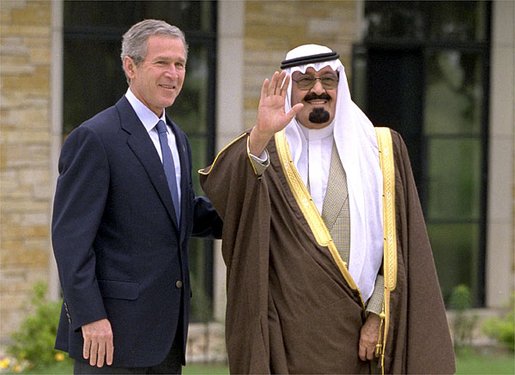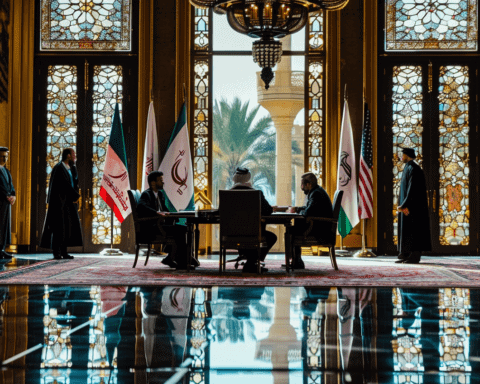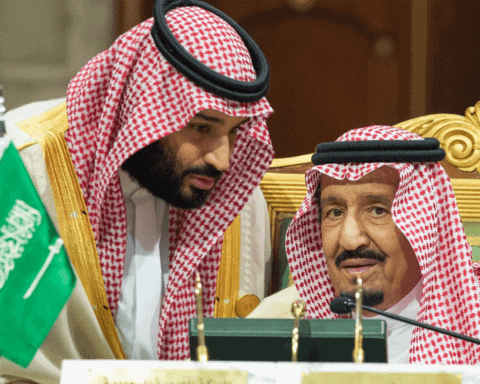The Enigma Behind the Crown: Who is Fahda bint Falah?
Fahda bint Falah bin Sultan Al Hithlain may not be a household name when it comes to the political arena of Saudi Arabia, yet her influence quietly reverberates through the royal corridors. Born into the ancient Ajman tribe, Fahda came of age surrounded by the cultural legacy and traditions of Bedouin life. Raised under the vast desert sky, her early years stood in stark contrast to the palatial extravagance that awaited her. Her tribal roots offered her an invaluable understanding of the complex tapestry of Saudi society—a skill that would later become a political asset.
Behind Closed Doors: The Strategic Marriage to King Salman
When Fahda married King Salman bin Abdulaziz Al Saud, it wasn’t just a joining of two people but also of disparate worlds. The marriage was far from incidental; it was a meticulously crafted strategic alliance. King Salman’s decision to marry Fahda was an astute political move, a way to form a nexus between the tribal and royal classes of Saudi Arabia. Her Bedouin heritage offered King Salman a conduit to the heart of the conservative elements within the Kingdom—a layer of society torn between the pull of tradition and the push towards modernity. This union was not merely matrimonial; it was a strategic melding of worlds that would have a long-lasting impact on the Saudi royal family.
Mothering a Future King: Nurturing MBS’s Political Instincts
Fahda’s influence extends far beyond being the wife of a king; she is the mother to a leader who has come to embody the dual nature of Saudi Arabia—progressive yet conservative, calculating yet audacious. Mohammed bin Salman, colloquially known as MBS, has been a meteoric force in Saudi politics. His ambitious Vision 2030 and the contentious Saudi role in the Yemen war have drawn both applause and criticism. In shaping these national and international policies, Fahda’s counsel has been quietly omnipresent. Though her role remains largely obscured from public view, insiders suggest that her sway over her son is substantial.
The Power of a Maternal Adviser: Fahda’s Unpublicized Counsel
The power of a mother’s words often stays hidden, yet it courses through the decisions made in palatial boardrooms and diplomatic discussions. Fahda bint Falah has assumed this role of an adviser, operating with strategic reticence. While she avoids the limelight, her wisdom echoes in the choices made by both her husband and her son. For instance, during the politically seismic Saudi purge of 2017, Fahda wasn’t simply a bystander. She was reportedly a quiet but potent force, advising on the shake-up that would rattle the core of Saudi governance and echo throughout the broader Middle East.
In the labyrinthine world of Saudi politics, Fahda has managed to be both a guiding light and an anchor. Her guidance, especially to MBS, carries significant weight. It has helped him navigate the treacherous waters of Middle Eastern politics and has informed decisions that have far-reaching implications. But her influence goes beyond mere advice; she has been instrumental in bridging the gaps between varying factions within Saudi Arabia, bringing a unique perspective that combines her deep-rooted tribal wisdom with a keen understanding of the delicate balance of power that defines the Kingdom.
Fahda’s Role in a Changing Kingdom: A Quiet Architect of Reform
Amidst the unprecedented changes taking place in Saudi Arabia—from the lifting of the driving ban on women to the radical Vision 2030 spearheaded by her son—Fahda’s role has been transformative yet understated. Her influence is said to permeate the drawing up of reforms, especially those that seek to empower women in the Kingdom. While MBS is credited for the bulk of these sweeping changes, Fahda’s seasoned counsel ensures that the reforms resonate with the broader public. It’s a delicate dance of modernizing a deeply conservative society without losing its essence, and who better to advise than a woman who herself bridges these two worlds? Her ability to reach into the cultural conscience of Saudi society makes her indispensable as an adviser, especially in the realm of social changes.
The Queen of Philanthropy: A Legacy Beyond Politics
But Fahda’s influence isn’t confined to political chambers. Her philanthropic endeavors make her a formidable force in the Kingdom’s social fabric. She’s deeply involved in several humanitarian activities, often focusing on women’s education and healthcare. Although her charitable work doesn’t make headlines, its impact is felt across various strata of Saudi society. She’s a staunch advocate for the role of Saudi women in the workforce, keen on providing them with the tools necessary to climb social and corporate ladders. It is through these quieter avenues that Fahda aims to bring about change, one step at a time, embodying the essence of what it means to wield influence responsibly.
A Matriarch in the Shadows: The Cloak of Privacy
Perhaps one of the most intriguing aspects of Fahda is her intentional retreat from public life, an anomalous choice for someone with such clout. Yet it is this very reclusiveness that makes her an enduring enigma. Fahda remains largely private and away from the media glare, preferring to exert her influence behind the scenes. Her guarded privacy is not a symbol of disengagement, but rather a calculated strategy to preserve the power and dignity of her position. By avoiding the trappings of public scrutiny, she has managed to maintain her role as an influential counselor to the King and the Crown Prince while sidestepping the volatility that often accompanies a life lived in the spotlight.
Fahda and Saudi Arabia’s Future: The Unwritten Chapters
As Saudi Arabia stands on the cusp of a new era, Fahda bint Falah finds herself at an intersection of past and future. With her son MBS at the helm, the kingdom is venturing into uncharted territories. As economic diversification and social reforms accelerate, Fahda’s wisdom will likely continue to serve as a navigational compass. While the actual extent of her involvement in shaping Saudi policies remains a closely guarded secret, it is clear that her influence, both as a mother and a political savant, will be etched into the annals of Saudi history.
In the end, Fahda bint Falah serves as a symbol of the untapped, often overlooked power of women in the Kingdom. Her life is a testament to the fact that influence isn’t always wielded in the public eye, but often behind closed doors, in whispered conversations that reverberate through the corridors of power. And as Saudi Arabia continues its ambitious journey towards modernization, one cannot help but acknowledge the unseen hand that guides its course: a mother, a wife, and a silent architect of change.
Frequently Asked Questions: The Untold Story of Mohammed bin Salman’s Mother
Who is Fahda bint Falah?
Fahda bint Falah is the mother of Mohammed bin Salman, the Crown Prince of Saudi Arabia. She is a significant but private figure in Saudi Arabia, influencing both political and social spheres.
What role has she played in Saudi reforms?
Although not publicly credited, Fahda is said to be an adviser in the country’s sweeping reforms, particularly those concerning women’s rights.
How does she influence MBS?
Fahda serves as a counsel to her son, Crown Prince Mohammed bin Salman, particularly in social and cultural matters.
What is her stance on philanthropy?
She is deeply involved in philanthropic activities in Saudi Arabia, especially those focused on women’s education and healthcare.
Why does she avoid the media spotlight?
Fahda intentionally remains private to maintain the dignity and power of her influential position, steering clear of public scrutiny.
What is her legacy likely to be?
Her influence, particularly as an advocate for social change and women’s empowerment in Saudi Arabia, will likely be an enduring legacy.








